This year has been one of the most energizing and amazing years of my life. I left my job at Oura after two and half years at the end of April. For the rest of the year, I’ve spent most of what would have been my working hours doing a lot of different things. I’ve played with artificial intelligence for many hours, I’ve done some epic hikes, started exercising again (though not enough), connected with old friends, made new friends both online and IRL, did school drop-off and pick-up, enjoyed summer in Colorado, spent quality time with my kids and other family, traveled to Paris, Los Alamos, Joshua Tree, camped in Pine Valley, Utah, read a lot of books, papers, newsletters and posts, saw art spanning thousands of years, listened to music, saw live music, helped people with their startups and their lives, took my kids and special friend to the NASA Jet Propulsion Lab and saw the construction of a spacecraft to explore Jupiter’s moon, researched topics that interested me, joined a writing club, wrote thousands of words and best of all, enjoyed large blocks of time for thinking.
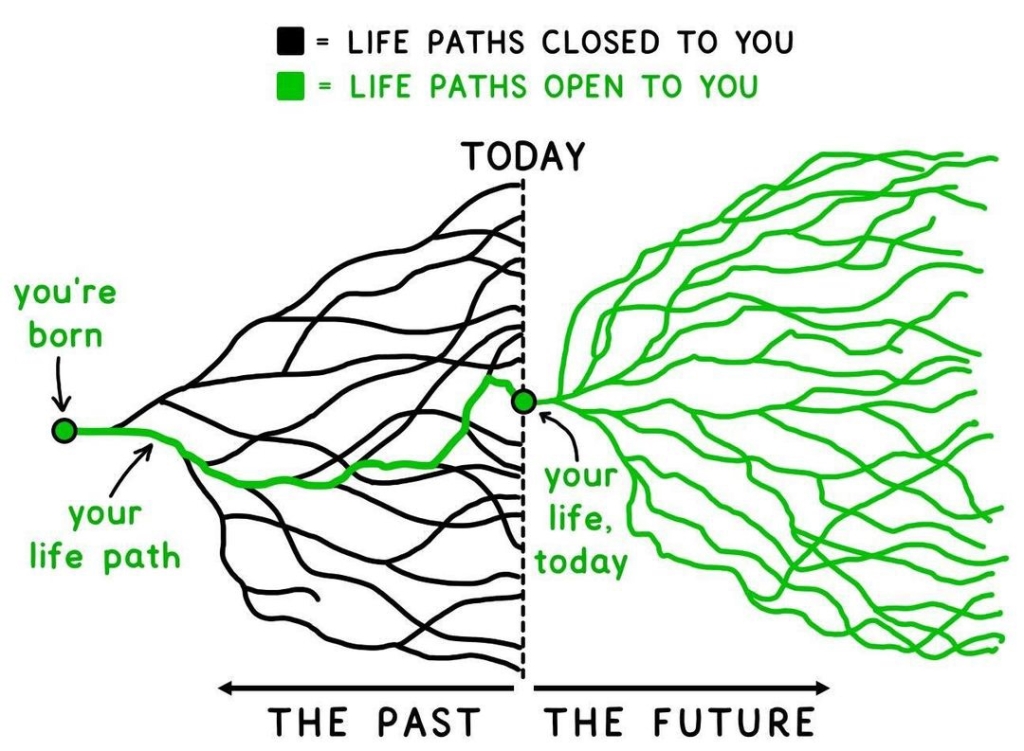
As a result, I feel more full of energy, more creative and more ready to… Well, I’ll have more to say about that soon. As anyone who knows me will attest, I spend a lot of time on the web researching, reading, discovering, collecting and curating. I need to post a follow-up to the post on my information existence, but as I was working on my annual playlist I thought maybe I would put together a post (this one) that highlights a bunch of other stuff I enjoyed this year.
Topics of Interest
There were a few topics on which I went deep this year, but my interest and fascination with Artificial Intelligence was the thing on which I went deepest. Nothing else came close. I often had to force myself to close my laptop to ensure I got a decent night’s sleep. As soon as I woke up, I would pick back up where I left off, obsessively playing with an overwhelming number of tools, APIs, services and apps.
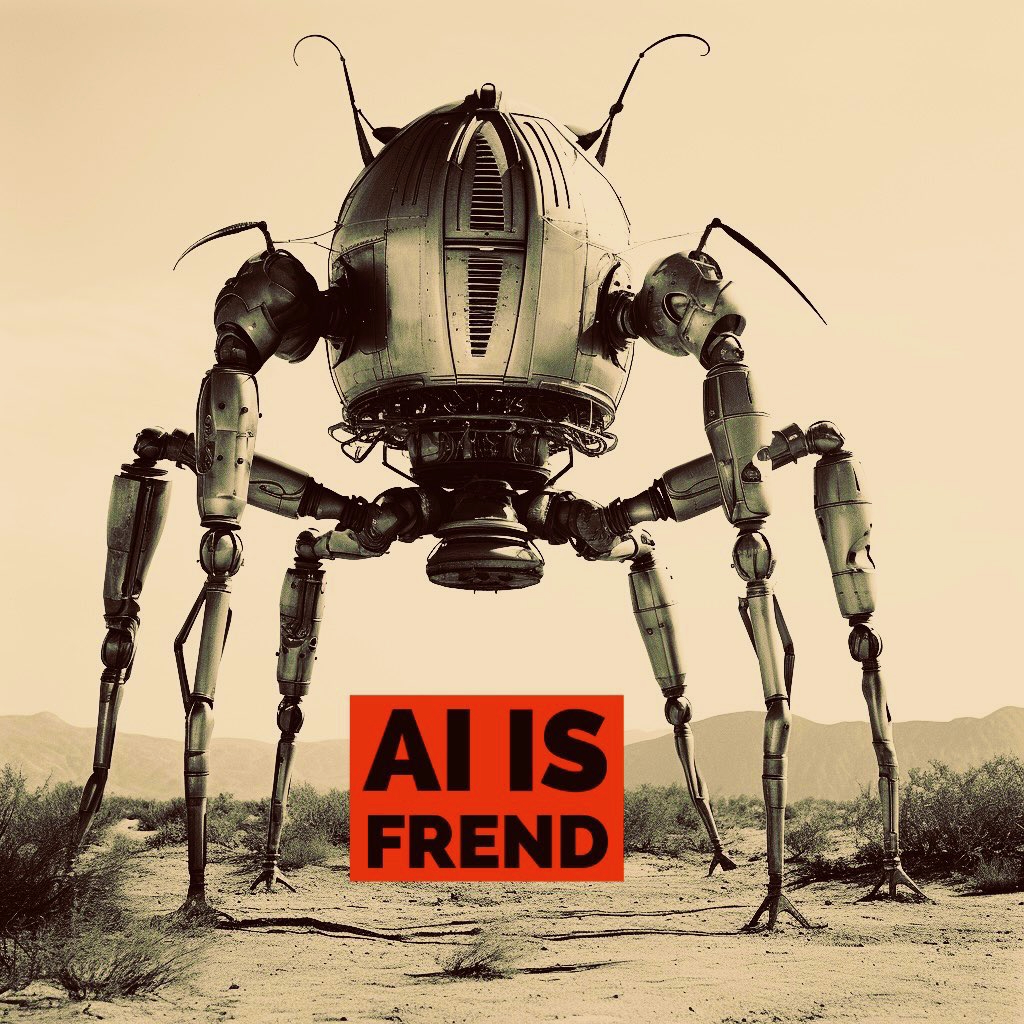
Looking at the bookmarks I added to Raindrop, over 1500 items were saved and tagged ‘AI’, comprised of blog posts, discussion threads, Twitter threads and papers covering everything from AI alignment to the risks AI poses to creativity, capitalism and humanity to using AI as tutor to help humans learn things better and faster. I’ve used ChatGPT as a collaboration partner, helping me get from zero to one on an idea I’ve had floating around for the last couple of years. I had ChatGPT help me create new English words. I’ve generated hundreds of images using Midjourney (below are just a few examples), some of which I did with my children. I’ve used Pi as a cognitive behavioral therapist. I’ve jammed with VCs, founders and developers on my ideas and their ideas.
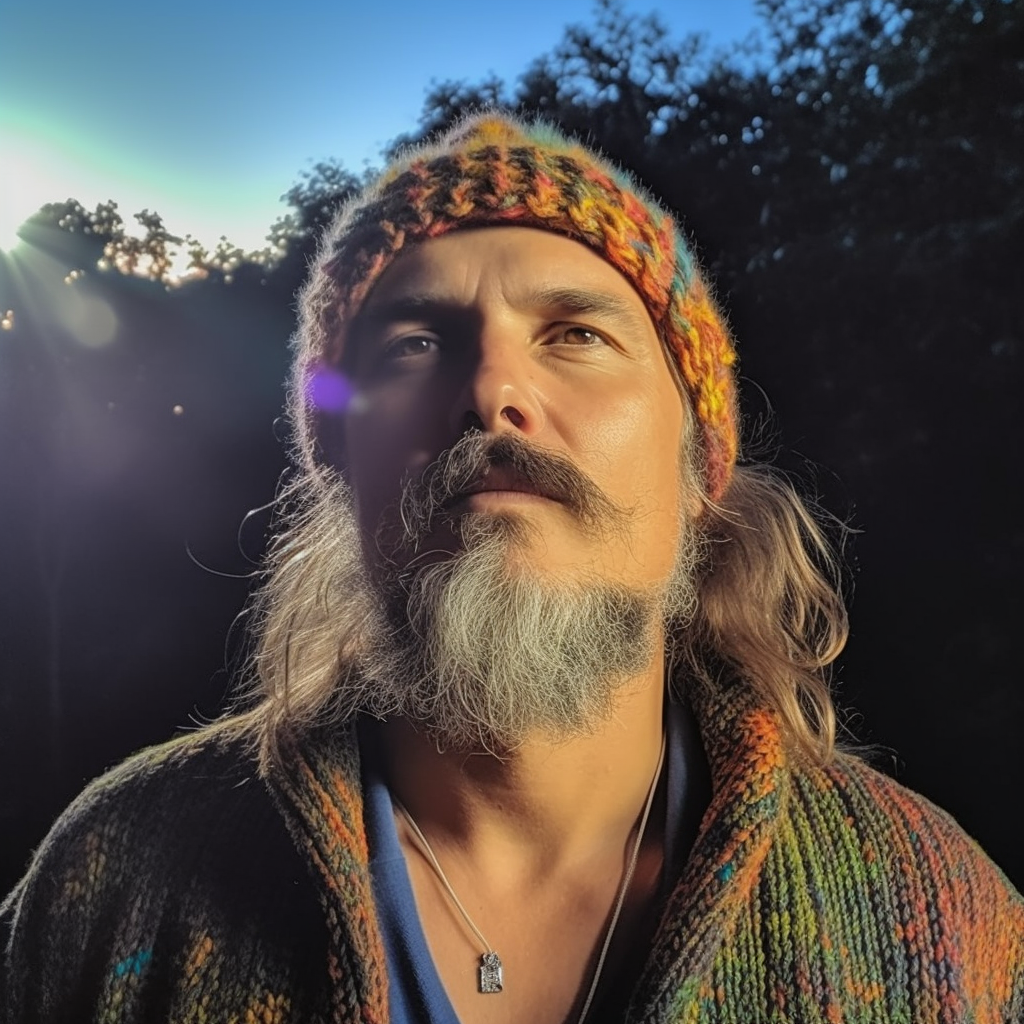






To say that I’ve learned a lot would be an understatement. It has easily been one of the most exciting and intellectually interesting periods of my life. I have often compared it to when I installed NCSA Mosaic and browsed the web for the first time.
One of the key insights came as I was having ChatGPT help me code something I had been wanting to create for some time. The idea was a simple one, but not simple enough for me to have done on my own until that particular moment in time. I switched to the ChatGPT tab in Arc, explained what I wanted to do in technical enough detail and then asked for its help to build an MVP (minimally viable product). A few hours later I had a functioning backend for the idea, which was mind-blowing. And that’s when I had the epiphany — AI, specifically coding assistants, is to the creation of code what ProTools was to the creation of music. To say it another way, coding assistants have democratized the creation of software in much the same way that ProTools democratized the creation of music.
Instructing machines (coding) has historically been the work of formally trained or at least highly motivated, self-taught, computer scientists and programmers. That has begun to change. While you currently still need to know how to prompt a coding assistant to get good results, it won’t be long before a non-technical person with a good idea and the ability to describe it in enough detail can create a product.
When ProTools came out, there were several hundred places throughout the world where musicians could record a professional sound recording. Recording studios were staffed with audio engineers, electrical engineers and other trained professionals. ProTools made the recording of music much more accessible.
As a creator, there are few things as frustrating as having an idea for a creation and not being able to manifest it because you lack the technical skills required. Lowering the barrier of creation is a wonderful thing for humanity, whether you’re bringing an idea for an app to life or making your music available to your fans.
Artificial Intelligence will have an immeasurable impact on the world. We’ve only just begun to see what’s possible. And while the impact will be destabilizing and disruptive, I remain highly optimistic. I believe the net benefit to humanity will overshadow the consequences.
Loneliness is a broad and important topic that deserves a lot more focus and attention, both individually and collectively. I see signs and am optimistic that the topic and potential solutions will receive attention and focus. There simply are not enough trained and certified professionals to serve those that need help. Loneliness is just one topic, but it’s one that causes a significant amount of suffering and societal impact. I gathered with some interesting and smart people in November as part of an initial effort to break the topic of loneliness down into smaller problems that felt easier to approach. I was thoroughly inspired by the people and the discussion. I’m especially inspired by what Adam Rosendahl does through Late Night Art. A mutual friend introduced us this year and we spent some time talking about loneliness.

Neuromodulation has been an area of interest, especially as it relates to delaying the onset of Alzheimer’s and other neurodegenerative diseases. As I have watched my mom decline due to Parkinson’s and Lewy body dementia, I’ve become increasingly interested in digital therapeutics and other non-pharmacological solutions to these diseases. I have been advising a company called Clarity most of the year that is working on a device for this purpose. Another popular application of this technology is improving sleep quality. I’ve talked with some founders working on ideas in this space as well. There are many other interesting applications for this technology and I’m excited to figure out how I can do more to help in this area.
Books
I purchase way more books than I actually get around to reading. I love books. I love the feel of them. I love looking at them. I love libraries. I love bookstores. The smell of a used bookstore is especially wonderful. I don’t purchase many physical books anymore, mostly because I read a lot of non-fiction that I mark up with highlights and annotations. Physical books just make this difficult and time-consuming. The reading experience on an Amazon Kindle or comparable device is not only generally better (for me), but unmatched when it comes to highlighting and annotating. Enough nerd talk. Here are a few books I especially enjoyed (or are still enjoying).


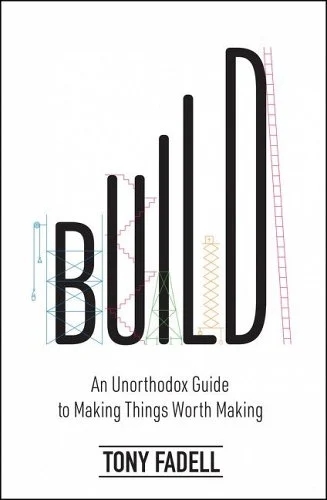


I relished reading and listening to The Creative Act: A Way of Being by Rick Rubin more than any other book this year.
While I’m not finished with it, I can tell Tomorrow, and Tomorrow, and Tomorrow by Gabrielle Zevin will be one of my favorites of the year. Many people seem to agree. It feels like this book has been EVERYWHERE this year.
Tony Fadell’s book, Build: An Unorthodox Guide to Making Things Worth Making, was one of the most enjoyable “business” books I’ve read in a while. It’s packed with practical advice for founders and people working on software, especially hardware products.
Another one I haven’t finished quite yet is Faith, Hope and Carnage, which is basically a conversation between two friends — Nick Cave and Sean O’Hagan. I’m perhaps more of an admirer of Nick as a human being than I am of his music at this point, but I still enjoy his music. This book deepened my respect for Nick.
Kevin Kelly released a book called Excellent Advice for Living: Wisdom I Wish I’d Known Earlier that I loved. It’s a lovely collection of proverbs. A quick and easy read, to be sure, but one you’ll undoubtedly come back to long after you finish the first read-through.
Music
I used to send out double-CDs of my year-end mixes. I would have artist friends create the artwork, I would order a bunch of jewel cases and burn each disc one-by-one. I really enjoyed doing it and having a physical thing was neat. It still is. But for as long as playlists of digital music have been a thing, I’ve been sending out a year-end playlist.
I stopped trying to make my playlists a best-of thing and just put some songs I like in a nice sequence and call it a day. In addition to this year’s playlist (Apple Music | Spotify), below are some full albums I enjoyed this year. I’ve provided links via song.link so they should all open in your music streaming app of choice or you can go buy a bunch of physical music.

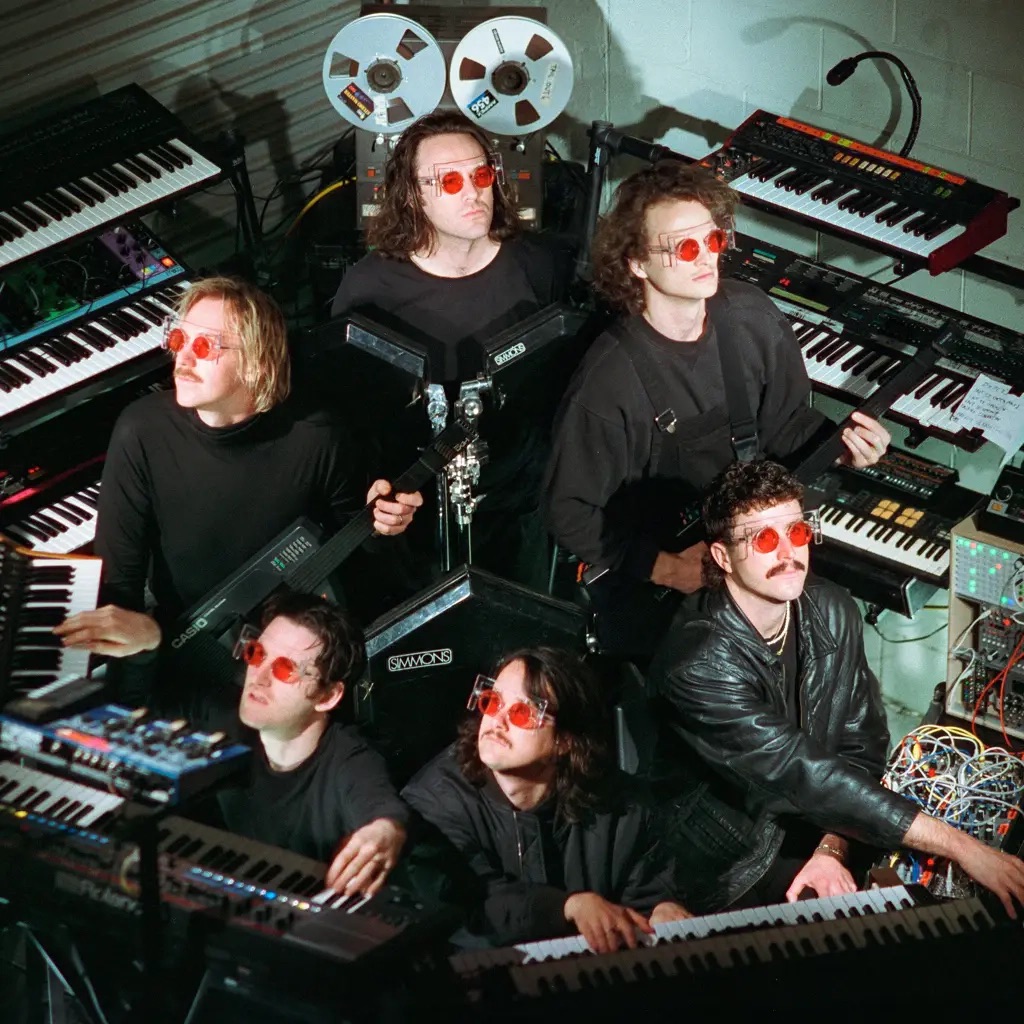
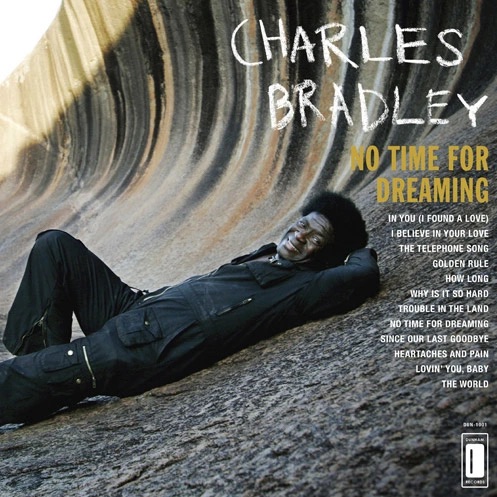

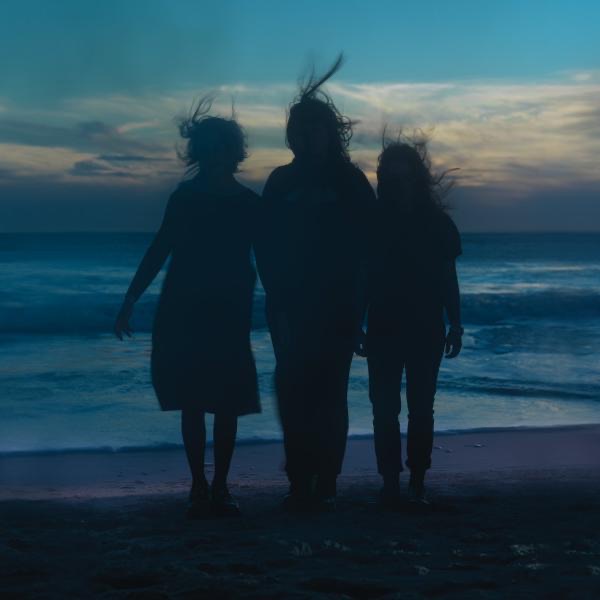
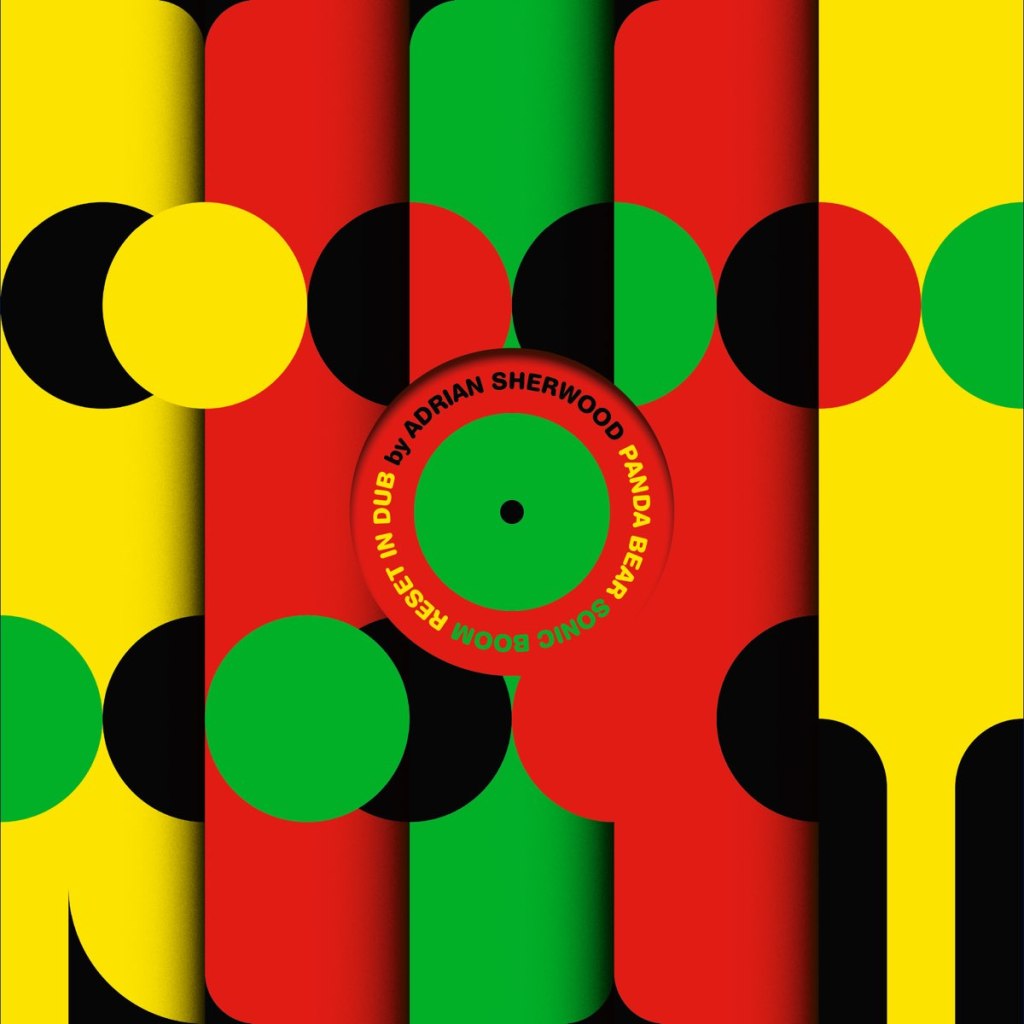
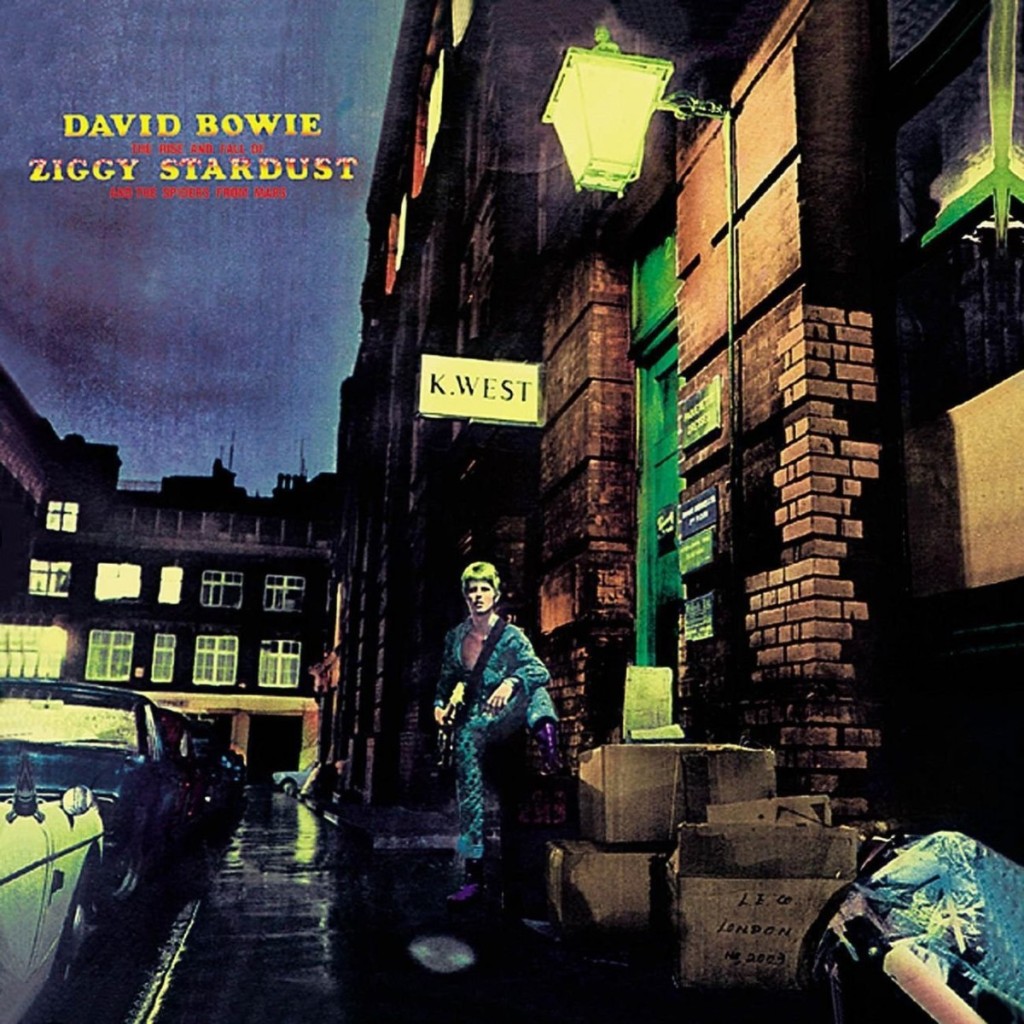
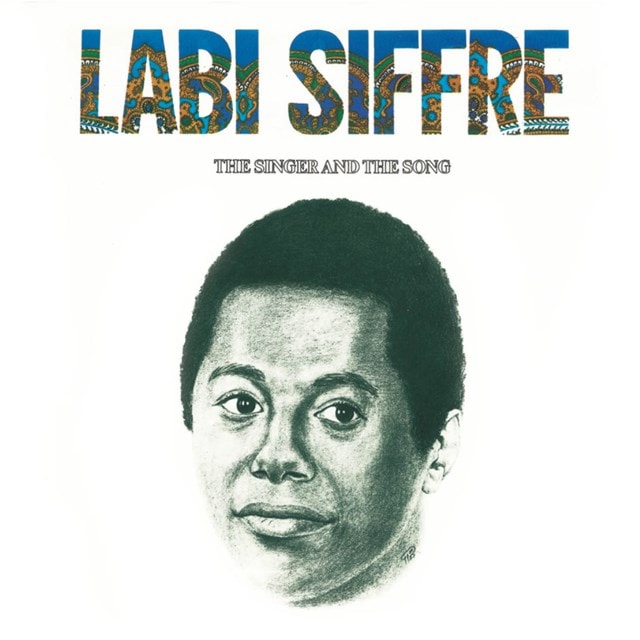








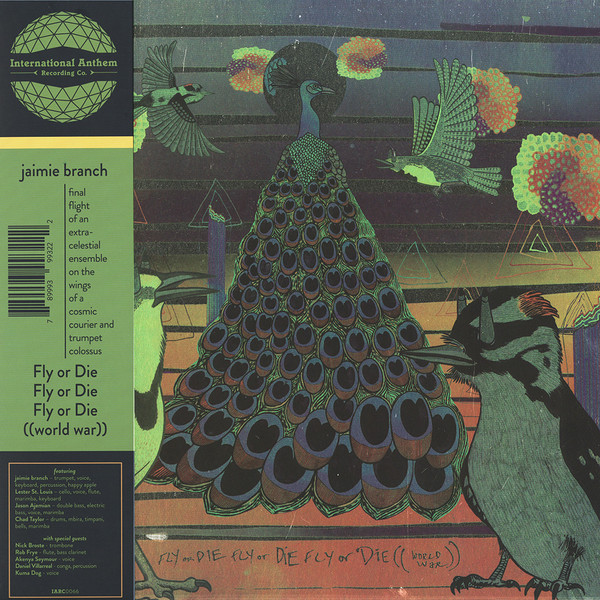
Jaimie Branch – Fly or Die Fly or Die Fly or Die ((world war))
Hania Rani – Ghosts
boygenius – the rest EP
DJ Shadow – Action Adventure
Slowdive – everything is alive
Yves Tumor – Praise A Lord Who Chews But Which Does Not Consume; (Or Simply, Hot Between Worlds)
Keith Jarrett – Solo-Concerts Bremen / Lausanne
Luisine – Long Light
Horace Silver – The Stylings Of Silver (The Rudy Van Gelder Edition)
King Gizzard & The Lizard Wizard – The Silver Cord
Emeralds – Does It Look Like I’m Here? (Expanded Remaster)
Julie Byrne – The Greater Wings
Charles Bradley – No Time For Dreaming
Labi Siffre – The Singer & The Song
David Bowie – The Rise and Fall of Ziggy Stardust and the Spiders From Mars
Panda Bear – Reset in Dub
Websites and Newsletters
Having been publishing and reading blogs since before the word was coined, I’m more optimistic than ever when it comes to personal publishing on the web. There are so many lovely personal sites to discover. And while it takes some effort, when you find something great it makes it all worth it. I read websites almost entirely via RSS. As soon as I find something I like, it gets added to my RSS feeds. These are a few discoveries from this year.
I stumbled onto The Music Aficionado as I was searching for an album cover. I felt like I had discovered hidden treasure. Boston-based Music Historian called Hayim Kobi writes everything on the site. If you have even the most casual of interests in modern music history, I highly recommend spending time here.
While I don’t like Substack as a platform for a few reasons, no one can deny that there is a lot of great writing happening on the platform. Jonathan Haidt’s After Babel has been especially helpful in helping me deepen my understanding of the mental health crisis, in particular as it relates to kids. His recent essay on anti-Semitism on college campuses was helpful as I’ve been trying to make sense of the general rise of anti-Semitism, even prior to the Israeli-Palestinian conflict.
Ethan Mollick’s One Useful Thing has been one of the more helpful sources of information, analysis and inspiration around artificial intelligence. He’s a professor at The Wharton School at Penn. His focus on AI in the context of education has been a topic that few others have written about as extensively. If I was going to recommend a single person to read on the topic of AI, it would probably be Ethan.
I looked in my email and RSS feeds and apparently I’ve been reading Sari Azout’s newsletters since the summer of 2022. Over the summer she started writing about something she was building called Sublime, which I talk more about below, and a new newsletter called Sublime Internet was born. I appreciated how vulnerable and open she was as she was building. She’s a model for a new kind of founder that I hope to see more often, especially those founding companies the the social, community and web publishing spaces.
I was originally drawn to Zvi Mowshowitz’s Don’t worry About The Vase because of how he was covering the pandemic and the latest research related to COVID-19. He now covers a lot more, including AI, medicine, health, and I enjoy almost all of it. He writes extremely dense posts steeped in rationality, but even if you only skim the posts, you’re likely to learn a lot and get introduced to many new rabbit holes. I appreciate that his writing is accessible and challenging at the same time.
Social, Community and Publishing Online
A quick rundown on where I’m currently spending time before I get into some more detail. I’ve been most active on Farcaster, Mastodon to some degree and very recently, Sublime. I occasionally open Bluesky and Threads. Outside of that it’s messaging apps and group texts on Apple Messages, Signal, Telegram, WhatsApp, Discord and Slack. I publish regularly to my microblog and when I have longer form stuff, I do it here.
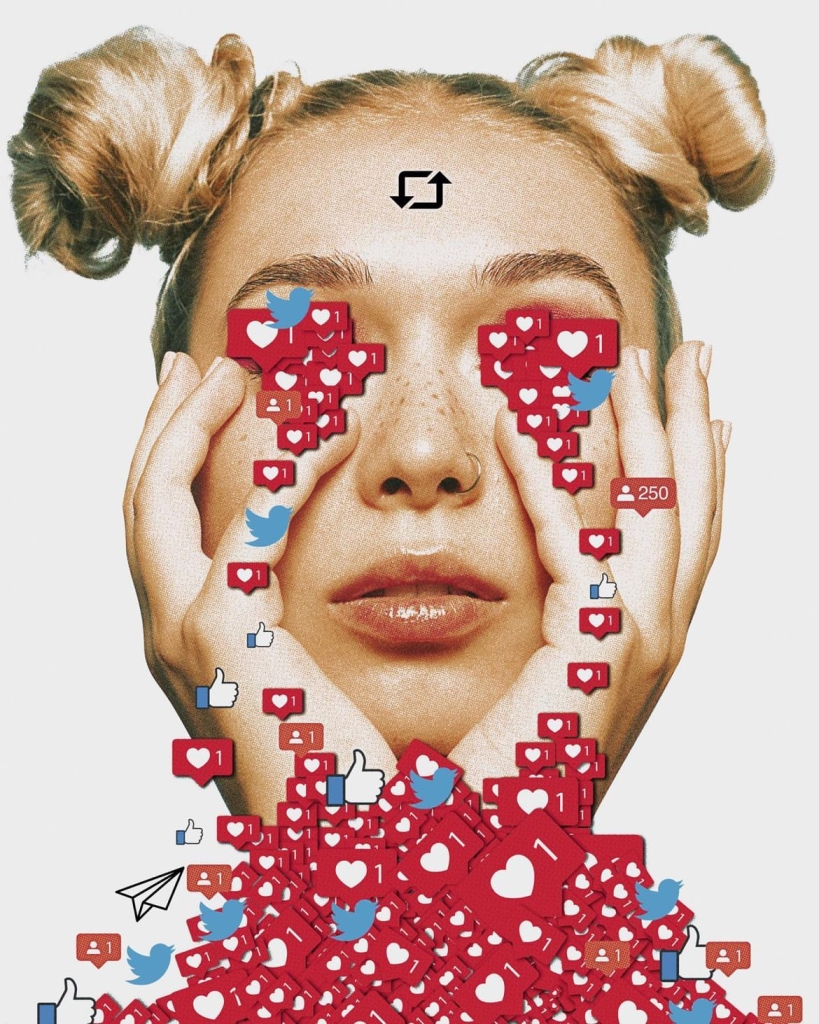
While I maintain a complicated, though largely healthy, relationship with social platforms it’s worth acknowledging that connection — real connection — is lacking in our daily lives. In fact, it’s so urgent that the U.S. Surgeon General issued an advisory and declared loneliness an epidemic in America. The illusionary perception that social media has brought us closer has faded. Living a performative life for the Internet is a recipe for emptiness. What has been revealed is that we are alone. We crave connection. Wherever we end up going, we want it to be more real. This means we should probably stop supporting centralized platforms, even if they look like they’re trying to do the right thing. Will we ever learn?
So, Twitter died. The result is what I have been referring to as The First Great Social Fragmentation. Platforms have come and gone, but this was different. I’m still trying to put all of my thoughts down about this, but the short of it is that people are moving to smaller social networks and group texts to connect more actively with like-minded people.
Reddit kinda died too. I canceled my subscription to Reddit Premium and almost never use it anymore unless I’m searching for something for which I know Reddit will be a good source.
With two mainstays dead or nearly dead, like many other extremely online people, I’ve been searching for the next gathering place. And where I’ve landed is not a single place, but a few places.
Farcaster is a small but bourgeoning decentralized social networking protocol, and Warpcast (iOS | Android) is their homegrown app. I joined in July of this year and it has been an amazing community full of interesting conversations and people, some of whom I have even met in IRL or had video calls with. I currently spend more time on Warpcast than I do anywhere else in terms of social networks. Due to it being a “Web3” thing there’s a lot of crypto and crypto-adjacent stuff, but it hasn’t really gotten in the way of enjoying the platform. There are topic-based channels that work similar to subreddits, allowing you to more easily find other people with shared interests.
Mastodon is probably the most well-known of the Fediverse protocols. It’s basically a collection of servers that each have their own rules, but no matter what server you join you can interact with people on the other servers. I joined mastodon.social, the largest server, back in 2018. But like many people, I didn’t start using it for real until this year. I open it a few times/week.
I’m really trying to adhere to the practice of publishing on my own site and syndicating elsewhere. It’s a practice known as POSSE in the indyweb world. I’ve been trying to make this easier by setting up systems for myself that remove friction. If I have to think about where to publish, that’s friction that keeps me from writing and publishing. To that end, I did a major personal web clean-up, consolidation and redesign this year. Prior to this effort, I had been hosting and managing various WordPress sites on Dreamhost for decades. I wanted to reduce friction and maintenance, so I consolidated everything onto bradbarrish.com, which is now hosted by WordPress.com. While I don’t love the WordPress interface, I’m confident they will be around for the long haul and when it comes to my blog, that’s an important factor.
I use the awesome Micro.blog service for micro.bradbarrish.com. I publish things nearly every day. As is the the case for microblogs, I publish short-form content I might have otherwise published on a social network like Twitter. I selectively cross post to Mastodon. It’s not perfect though. I go back and forth about the value of having my microblog posts separate from my long-form writing, but the ability to quickly and easily post shorter things that I enjoy is the reason I stick with the current setup. I’ve tried doing the same with WordPress, but cannot figure out a method that comes close. If you have one, let me know.
Podcasts
I really miss the amount of time I used to have for podcasts. In The Before Times I was spending more time in the car, but I’ve had to make time while washing dishes, walking or doing some other mindless activity. I love podcasts as a medium and tend to be a better listener than reader. I listen to tons of different podcasts, but my consistent favorites are Tetragrammaton, The Tim Ferriss Show, Conversations with Tyler, On Being with Krista Tippett and Search Engine. Here are a few episodes I particularly enjoyed.
My good friend Shannon linked me to Krista Tippett’s unedited interview with U.S. Surgeon General, Vivek Murthy, which brought to light our country’s epidemic of loneliness and its impact on overall health and wellbeing. I found this episode to be very moving. It also planted a seed and helped me make progress on some ideas I had floating around in my head about loneliness and the Internet. I intend to share more on that in the future.
Hidden Brain is another favorite, but there was one episode, Escaping Perfectionism that I heard at exactly the right time. While I don’t consider myself a perfectionist, I can definitely have perfectionistic tendencies.
I listened to several interviews with Rick Rubin that he did to promote his book, but I think the two I enjoyed most were with Tyler Cowan and with Krista Tippett. Tyler and Krista are very different interviewers so listening to each of them will provide unique insights. And don’t sleep on listening to Tyler DJ for Rick! It gives a glimpse into the encyclopedic music knowledge they each possess. This was an immensely entertaining listen for me. I smiled and even laughed throughout.
PJ Vogt came out with a new podcast called Search Engine and I have enjoyed literally every episode. No podcast that I can think of feels like it was more made for me. Perhaps one of the best pieces of journalism I came across all year spanned two episodes (Episode 1 | Episode 2) to answer the question of why drug dealers put fentanyl in everything.
Yancey Strickler was on Joshua Citarella’s podcast talking about the creator economy, his Dark Forest Theory Of The Internet (a must-read if you aren’t familiar) and the latest project he co-founded called Metalabel.
Videos
I continue to believe that YouTube is one of the most underrated resources available on the web. I wish they didn’t feels so threatened by Tik-Tok because I really dislike the enshittification of my YouTube home page, despite paying for YouTube Premium. Anyway, here are some great videos I came across this year.
I’m a massive Beatles fan and like many other fans, seeing the short film about the making of Now and Then, “the last Beatles song” was stunning. Lots of goosebumps and even got a little choked up.
Apple’s famous Think Different commercial, narrated by Steve Jobs is one I came across recently. The original commercial that aired is great, but this version with Steve’s voice is especially great.
I can’t get enough of listening to André 3000 interviews. He’s been on a press tour around his new album, which I linked to above. His appearance on CBS Mornings and his interview for GQ are probably my favorites.
I loved Kassa Overall’s cover of Snoop’s “Drop It Like It’s Hot”.
This design Q&A film with Charles Eames was the conceptual basis of the exhibition ‘Qu’est ce que le design?’ at the Musée des Arts Décoratifs, Palais de Louvre in 1972.
The music video for the opening track on my 2023 playlist, “Back On 74” by Jungle is outstanding. It was choreographed by the insanely talented Shay Latukolan. It was unbelievably done in a single take! Also worth checking out the feature film they made for the album as well.
I tried to see Hania Rani play in Paris when I was there, but couldn’t get tickets. Guess I’ll have to settle for her performance at Invalides in Paris.
The Cypress Hill Tiny Desk Concert was super fun. I wrote about a fun interaction I had with Mark Nishita (a.k.a. Money Mark) just after he returned to LA from shooting the video.
I got turned on to DOMi and JD BECK from watching an absolutely mindblowing video of them covering “Flim” by Aphex Twin. If you aren’t familiar with the original song, best to listen to it before watching the video.
My kids and I enjoyed watching Thomas Burns build a robot.
I feel like 60 Minutes is kind of for Boomers, but that didn’t stop me from enjoying interviews with David Byrne and Rick Rubin.
It’s not a video, but in the early part of the year when everyone was really freaking out about generative AI, I ran across this AISIS album. If you’re a ’90s Oasis fan, this will blow your mind, as long as you’re open and allow it. There’s a lot of garbage out there generated by AI, but this was fundamentally different, at least to me. It’s worth noting that the songs were written and performed by an actual band called Breezer and the songs were decent. In some cases they were quite good. I kinda love that it ended up being a promo for their actual album, minus the synthesized Liam vocals.
Remember the HBO space intro? You’re old, but who cares? So am I! It was fun to enjoy the remastered version.
The Yussef Dayes Experience performed on a porch overlooking Malibu.
Apps and Services
This is by no means an exhaustive list of apps I use, but an attempt to highlight some that I started using, some I continue to use and a couple I started using again. I’ve been trying to be much more purposeful in the apps and services I use. My principles are:
- When a product is free, you are the product. Pay for well-designed, highly functional software made by talented individuals or small teams interested in building sustainable businesses.
- Support open, federated and decentralized apps, platforms, protocols and services. We’ve seen over and over what happens when we support centralized platforms, especially those run by people that are not interested in contributing to an open Internet and web.
- Before hiring a new app, clearly state why it is better than what you are currently using. This is intended to be a check on impulsive decisions that waste a lot of time. I’m easily distracted by shiny new things.
I use a lot of AI apps. 2023 was a big year for all things AI and it ain’t gonna slow down. The ChatGPT app (iOS | Android) and service are used many times per day for learning, writing, coding and so many other things. I prefer the voice interface of the app on my iPhone. It makes all other “voice assistants” look like dumb toys. I happily pay $20/month for Plus. I also use Claude quite a bit and often ask the same questions of Claude that I give to ChatGPT. I like using Pi as a sort of cognitive behavioral therapist and it’s frankly better than a lot of therapists people pay hundreds of dollars per session. I love using Midjourney for image generation and so do my children. If you want the ability to use all of the major models in a single interface, I recommend checking out Perplexity and Poe.
Arc is a web browser. Or is it? Whatever it is, it’s pretty much the only browser I use. I often describe Arc as a sort of operating system for the web. The features are so much more than what you would find on Chrome, Safari or Firefox. I know I’ve said it before, but the fact that I’m excited about a new web browser is a little ridiculous, but it’s true! I love everything about the product and the company, but it’s not for everyone. It feels like it’s a product for extremely online people like me, but I don’t think it would be a lot to ask my wife to switch. I’m not sure how much that actually matters though. They’re building something big and I’m happy to support them.
Flighty is the best travel app by a long shot. Nothing comes close. It is exceptionally well-designed and extremely useful. I had many years of travel data in TripIt, which I was able to import. Because I travel somewhat infrequently, I just pay the monthly subscription before my flight and then deactivate it after travel is complete. It’s classy to have that as an option.
As I mentioned earlier in the post, Sari Azout is building an interesting service called Sublime to which I recently got access. The service bills itself as “the perfect tool to collect and connect anything interesting you come across,” which I love, if for no other reason, than for its aspiration. Over the last few years, there has been an explosion in what I refer to as networked thinking or note-taking apps and services. I would put Roam, Loqseq, Tana and Obsidian in this category. The fundamental value of these products is that you can easily link ideas and other things together, similar, and in some cases, exactly like how the web works. To be clear, Sublime isn’t trying to be a note-taking app, but it does borrow some elements of these networked thinking tools in an effort to make curating and sharing things online easier, more intentional and more human. As someone who has been obsessively collecting, sharing and categorizing things I find online for decades, this sort of service excites me. It’s early days for Sublime, but I love what Sari and team are doing.
I doubled down on Readwise, though I mostly use Reader as a read-it-later app. I exported everything in Instapaper, which I had been using since Marco created it in 2008, canceled my subscription and deleted my account. While I use it as a read-it-later app, it can also be used for RSS, though I don’t care much for their RSS functionality. I have thousands of categorized feeds with saved searches in Feedbin and have no intention of moving things. Maybe I could save a few bucks by not paying a subscription for two apps that have overlapping functionality, but my approach is to pay for (or support in some way) the things you want to exist in the world.
I’m using Apple Music again. The sound quality is really great, but it is not easy migrating away from Spotify, especially when my kids have invested so much in it.
Beeper is amazing… when it actually works. It brings a bunch of commo chat apps into a single interface, which for me is a dream come true. At the time of this writing, they seem to be in a sort of wack-a-mole game with Apple, who keeps blocking their solution to have Apple Messages in the app. I would expect no less from Apple.
Airalo came in very handy while traveling, allowing me to easily get an eSIM for mobile data while I was in Paris. Getting a SIM, to say nothing of adding a second one to a phone, used to be insanely complicated. If you wanna give it a shot, use my referral code: BRAD1280 and we both get a little something.
In my never-ending quest to find the perfect weather app, I have been happy with Weather Strip. It is information-dense and lovely to look at.
I’ve settled on Obsidian for my second brain after using Roam, Loqseq and Tana and don’t plan to look further. They’re a paid, local service with a small team and no intention to grow beyond their needs. The app and service are free, but their paid tiers are reasonably priced and have great features. They have a very healthy developer community and I really like their CEO a lot and trust the company will be around for a while.
Apple Maps is so much better than Google Maps for driving navigation at this point. If you haven’t tried using it in a while, you should. I do still use Google Maps, but primarily use Apple Maps while driving.
I’ve been using Paragraph as my newsletter platform of choice. I use WordPress for my blog, but their newsletter functionality isn’t great. I’ve been enjoying Paragraph overall. If the whole web3/crypto vibe isn’t for you, Buttondown is also a great platform.
Thanks for reading to the bottom of what is perhaps the longest post I’ve done. I put a ton of time into this post over the last several weeks. I’d love to hear any and all feedback you have, so I’ve enabled comments for this post. We’ll see how it goes.
2 responses to “2023 was a great year”
@bradbarrish.com I really enjoyed reading your thorough post, especially when it comes to AI. I feel like being adaptible to change makes you a successful person. By the way, I tried Flighty and liked how I can track my booked flights, which is then logged into my history.
Thank you for reading and especially for the kind words. I think being adaptable to change is a byproduct of having an insatiable curiosity. Glad you liked Flighty. It’s such a great app.